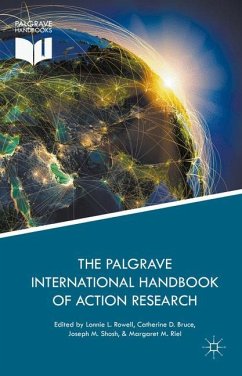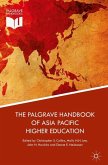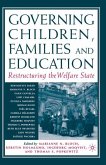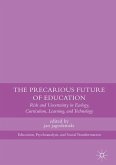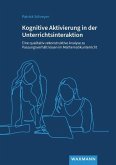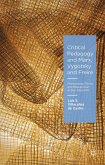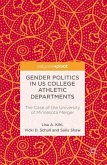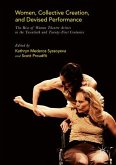The Palgrave International Handbook of Action Research
Herausgegeben:Rowell, Lonnie L.; Bruce, Catherine D.; Shosh, Joseph M.; Riel, Margaret M.
The Palgrave International Handbook of Action Research
Herausgegeben:Rowell, Lonnie L.; Bruce, Catherine D.; Shosh, Joseph M.; Riel, Margaret M.
- Gebundenes Buch
- Merkliste
- Auf die Merkliste
- Bewerten Bewerten
- Teilen
- Produkt teilen
- Produkterinnerung
- Produkterinnerung
The Palgrave International Handbook of Action Research offers a vivid portrait of both theoretical perspectives and practical action research activity and related benefits around the globe, while attending to the cultural, political, social, historical and ecological contexts that localize, shape and characterize action research. Consisting of teachers, youth workers, counselors, nurses, community developers, artists, ecologists, farmers, settlement-dwellers, students, professors and intellectual-activists on every continent and at every edge of the globe, the movement sustained and inspired…mehr
Andere Kunden interessierten sich auch für
![The Palgrave Handbook of Asia Pacific Higher Education The Palgrave Handbook of Asia Pacific Higher Education]() The Palgrave Handbook of Asia Pacific Higher Education209,99 €
The Palgrave Handbook of Asia Pacific Higher Education209,99 €![Governing Children, Families and Education Governing Children, Families and Education]() Marianne BlochGoverning Children, Families and Education28,99 €
Marianne BlochGoverning Children, Families and Education28,99 €![The Precarious Future of Education The Precarious Future of Education]() The Precarious Future of Education64,99 €
The Precarious Future of Education64,99 €![Kognitive Aktivierung in der Unterrichtsinteraktion Kognitive Aktivierung in der Unterrichtsinteraktion]() Patrick SchreyerKognitive Aktivierung in der Unterrichtsinteraktion39,90 €
Patrick SchreyerKognitive Aktivierung in der Unterrichtsinteraktion39,90 €![Critical Pedagogy and Marx, Vygotsky and Freire Critical Pedagogy and Marx, Vygotsky and Freire]() Luis S. Villacañas de CastroCritical Pedagogy and Marx, Vygotsky and Freire75,99 €
Luis S. Villacañas de CastroCritical Pedagogy and Marx, Vygotsky and Freire75,99 €![Gender Politics in US College Athletic Departments Gender Politics in US College Athletic Departments]() Lisa A. KihlGender Politics in US College Athletic Departments38,99 €
Lisa A. KihlGender Politics in US College Athletic Departments38,99 €![Women, Collective Creation, and Devised Performance Women, Collective Creation, and Devised Performance]() Women, Collective Creation, and Devised Performance90,99 €
Women, Collective Creation, and Devised Performance90,99 €-
-
-
The Palgrave International Handbook of Action Research offers a vivid portrait of both theoretical perspectives and practical action research activity and related benefits around the globe, while attending to the cultural, political, social, historical and ecological contexts that localize, shape and characterize action research. Consisting of teachers, youth workers, counselors, nurses, community developers, artists, ecologists, farmers, settlement-dwellers, students, professors and intellectual-activists on every continent and at every edge of the globe, the movement sustained and inspired by this community was born of the efforts of intellectual-activists in the mid-twentieth century specifically: Orlando Fals Borda, Paulo Freire, Myles Horton, Kurt Lewin. Cross-national issues of networking, as well as the challenges, tensions, and issues associated with the transformative power of action research are explored from multiple perspectives providing unique contributions to ourunderstanding of what it means to do action research and to be an action researcher. This handbook sets a global action research agenda and map for readers to consider as they embark on new projects.
Produktdetails
- Produktdetails
- Verlag: Palgrave Macmillan / Palgrave Macmillan US / Springer Palgrave Macmillan
- Artikelnr. des Verlages: 978-1-137-44108-9
- 1st ed. 2017
- Seitenzahl: 940
- Erscheinungstermin: 27. Oktober 2016
- Englisch
- Abmessung: 241mm x 160mm x 56mm
- Gewicht: 1574g
- ISBN-13: 9781137441089
- ISBN-10: 1137441089
- Artikelnr.: 44466469
- Herstellerkennzeichnung Die Herstellerinformationen sind derzeit nicht verfügbar.
- Verlag: Palgrave Macmillan / Palgrave Macmillan US / Springer Palgrave Macmillan
- Artikelnr. des Verlages: 978-1-137-44108-9
- 1st ed. 2017
- Seitenzahl: 940
- Erscheinungstermin: 27. Oktober 2016
- Englisch
- Abmessung: 241mm x 160mm x 56mm
- Gewicht: 1574g
- ISBN-13: 9781137441089
- ISBN-10: 1137441089
- Artikelnr.: 44466469
- Herstellerkennzeichnung Die Herstellerinformationen sind derzeit nicht verfügbar.
Lonnie L. Rowell is Associate Professor of Counseling in the School of Leadership and Education Sciences at the University of San Diego, USA. He is an Editor for Educational Action Research and was Founding Chair of the Action Research Network of the Americas. Joseph M. Shosh is Professor and Chair of the Department of Education at Moravian College, USA, and Chair of the Executive Committee of the Action Research Network of the Americas. He is the recipient of the National Council of Teachers of English Paul and Kate Farmer English Journal Writing Award, the James N. Moffett Award for Classroom Research, and Cornell University¿s Merrill Scholar Teaching Award. Catherine D. Bruce is Associate Professor at Trent University, Canada. Her research involves collaborative action research with educators in classrooms to bridge research and practice gaps in education. She is passionate in her conviction that all learners are capable of success in mathematics. Her research areas include teacher and student efficacy and models of professional learning. Margaret M. Riel is Director of the Center for Collaborative Action Research and a member of the Action Research Network of the Americas Executive Committee. Her goal is to help innovative global educators transform their practices to ones that are informed and guided by action research.
Part I: Background and Contexts.- Introduction to Part I; Joseph M. Shosh.- 1.Critical Participatory Action Research; Robin McTaggart, Rhonda Nixon and Stephen Kemmis.- 2.Informal Action Research: The Nature and Contribution of Everyday Classroom Inquiry; Clive Beck.- 3.Emancipatory Action Research as a Critical Living Praxis: From Dominant Narrative to Counternarratives; Margaret Ledwith.- 4.Knowledge Democracy and Action Research: Pathways for the Twenty-First Century; Lonnie L. Rowell and Eunsook Hong.- 5.Defining Action Research: On Dialogic Spaces for Constructing Shared Meanings; Lonnie L. Rowell, Margaret Riel, and Elena Y. Polush.- Part II: A World of Action Research.- Introduction to Part II; Catherine D. Bruce and Lonnie L. Rowell.- 6.Action Research in the Canadian Context; Kurt W. Clausen.- 7.An Emergent History of Educational Action Research in the English Speaking World; Allan Feldman.- 8.Participation and theWork of the Imagination: A Colombian Retrospective; Joanne Rappaport.- 9.Action Research and Participatory Research in Brazil; Michel Thiollent and Maria Madalena Colette.- 10.Community Action Research in Ireland: Improving Educational Outcomes in the Dublin Docklands; Josephine Bleach.- 11.Creating a Pedagogy of Vocational Training for Young People not in Education, Employment or Training; Gil Mason and Joan Walton.- 12.The Experience of Lesson Study in the UK; Phil Wood, Alison Fox, Julie Norton, & Maarten Tas.- 13.A Snapshot of Action Research in and by Higher Education in Southern Africa; Lesley Wood, Catherine Dean, Pieter du Toit, Omar Esau, Angela James, Paul Rampaola Mokhele, & Ansurie Pillay.- 14.Community Mapping for Empowerment: Collectivising Adults for Action in the Slums of India; Manoj Rai.- 15.Learning About Action Research In and From the Middle East; Jean McNiff.- 16.Transformative Education for Gross National Happiness: A Teacher Action Research Project in Bhutan; Rosalind Cooper and Timothy Bedford.- <17.Action Research in the Sri Lankan Education System: A Historical Perspective;Godwin Kodituwakku.- 18.The Status of Action Research in the People's Republic of China: A Review of Recent Literature; Lin Yuan.- 19.Using Action Research for Educational Reform in the Nation of Mongolia: A Catalyst for Democratic Transformation; Candace Kaye, Jadambaa Badrakh, Narantsetseg Dorjgotov, Batdelger Jamsrandorj, Baigalmaa Chultum, & Altangoo Orchirbat.- 20.Educational Action Research in South Korea: Finding New Meanings in Practitioner-Based Research; Mina Kim and So Jung Kim.- 21.Transforming Educational Practice through Action Research: Three Australian Examples; Janette Bobis and Robyn Ewing.- Part III: Action Research Networks in Local and Global ContextsIntroduction to Part III; Margaret Riel.- 22.Networking at the Grassroots: Action Research Partnerships in Education; Suzy Thomas.- 23.Practice and Theory in Action Research: Living Theories as Frameworks for Action; Jack Whitehead.- 24.Maintaining a Network of Critical Connections over Time and Space: The Case of CARN, the Collaborative Action Research Network; Ruth Balogh, Mary McAteer, & Una Hanley.- 25.Action Learning and Action Research Association (ALARA): History, Culture and Sustainability; Ortrun Zuber-Skerritt and Ron Passfield.- 26.Participatory Research in Asia (PRIA); Rajesh Tandon.- 27.The Nordic Network of Action Research (NNAR): Action Research within the Tradition of Nordic Countries; Karin Rönnerman and Petri Salo.- 28.Pedagogy Education Praxis Network (P.E.P): International Research Program; Stephen Kemmis, Karin Rönnerman, and Christine Edwards-Groves.- 29.The Action Research Network of the Americas (ARNA): Constructing a New Network of North-South Convergence; Joseph M. Shosh, Lonnie L. Rowell, Margaret M. Riel, & Catherine D. Bruce.- Part IV: Challenges, Tensions, and Issues in the Expanding Conceptions of Action ResearchIntroduction to Part IV; Joseph M. Shosh.- 30.Ethical, Epistemic, and Political Issues in Equity-Oriented Collaborative Community-Based Research; Samara S. Foster and Ronald David Glass.- 31.Effecting a High School Culture of Writing: Issues and Dilemmas in Participatory Action Research; Terry Locke and Shaun Hawthorne.- 32.Action Research and Organizational Change in Non-Profit Human Services: Reflections on a Collaborative Action Research Approach to Working with Child, Youth, and Family Organizations; Robert Urquhart and Michael Wearing.- 33.Donor Influence in Community-Based Action Research: A Typology for Advancing Reflexive Decision Making to Protect Participatory Values; David P. Moxley, Valerie Thompson, & Zermarie Deacon.- 34.Praxis and Axis: Theory as Practice in a Melanesian Case Study; Anitra Nelson and NatalieMoxham.- 35.Through a Lens of Reinterpretation: Roles in Facilitated Action Research; Rachel Perry and Tim McGarry.- 36.Inside the Outside: Reflections on a Researcher's Positionality / Multiple "I's"; Nathalis Wamba.- 37.Digital Technology in Service of Action Research; Margaret Riel.- 38.Toward the Construction of a Local Knowledge Base on Teaching and Learning by and for Teachers and Learners; Joseph M. Shosh.- 39.Action Research and the Development of Expertise: Rethinking Teacher Education; Margaret Riel and Lonnie L. Rowell.- Part V: Case Studies in Action Research.- Introduction to Part V: Case Studies of Action Research: Looking Towards Cross-Case Analysis; Catherine D. Bruce.- 40.Arts-based and Participatory Action Research with Recycling Cooperatives; Jutta Gutberlet, Bruno de Oliveira Jayme & Crystal Tremblay.- 41.Border Pedagogy and Orientación y Tutoría: A Case Study of USA-Mexico Collaborative Action Research; Shelley Barajas-Leyva and Lonnie L. Rowell.- 42.E-readers' Impact on Early Readers' Engagement and Literacy Achievement; Alicia Wenzel and Cheryl Peterson.- 43.Commentary on the Action Research Laboratory: A US School-Based Action Research Program; Joseph C. Senese.- 44.Fostering a School-Community Partnership for Mutual Learning and Development: A Participatory Action Learning and Action Research Approach; Lesley Wood and Bruce Damons.- Part VI: Looking Ahead.- Introduction to Part VI; Joseph M. Shosh and Lonnie L. Rowell.- 45.Learning Together: Dialogue, Collaboration, and Reciprocal Transformation in a Nicaraguan Educational Program; Sharon M. Ravitch, Matthew J. Tarditi, Nayibe Montenegro, Duilio Baltodano, & Eveling Estrada.- 46.Participatory Action Research for Recovery of the Senses and Sources of Historic Memory; Cesar Osario-Sanchez.- 47.Linking Foresight and Action: Toward a Futures Action Research; José Ramos.- 48.Towards a Strategic Agenda for Global Action Research: Reflections on Alternative Globalization; Lonnie L. Rowell, Ruth Balogh, Ortrun Zuber-Skerrit, Christine Edwards-Groves, Doris Santos, & Joseph M. Shosh.
Part I: Background and Contexts.- Introduction to Part I; Joseph M. Shosh.- 1.Critical Participatory Action Research; Robin McTaggart, Rhonda Nixon and Stephen Kemmis.- 2.Informal Action Research: The Nature and Contribution of Everyday Classroom Inquiry; Clive Beck.- 3.Emancipatory Action Research as a Critical Living Praxis: From Dominant Narrative to Counternarratives; Margaret Ledwith.- 4.Knowledge Democracy and Action Research: Pathways for the Twenty-First Century; Lonnie L. Rowell and Eunsook Hong.- 5.Defining Action Research: On Dialogic Spaces for Constructing Shared Meanings; Lonnie L. Rowell, Margaret Riel, and Elena Y. Polush.- Part II: A World of Action Research.- Introduction to Part II; Catherine D. Bruce and Lonnie L. Rowell.- 6.Action Research in the Canadian Context; Kurt W. Clausen.- 7.An Emergent History of Educational Action Research in the English Speaking World; Allan Feldman.- 8.Participation and theWork of the Imagination: A Colombian Retrospective; Joanne Rappaport.- 9.Action Research and Participatory Research in Brazil; Michel Thiollent and Maria Madalena Colette.- 10.Community Action Research in Ireland: Improving Educational Outcomes in the Dublin Docklands; Josephine Bleach.- 11.Creating a Pedagogy of Vocational Training for Young People not in Education, Employment or Training; Gil Mason and Joan Walton.- 12.The Experience of Lesson Study in the UK; Phil Wood, Alison Fox, Julie Norton, & Maarten Tas.- 13.A Snapshot of Action Research in and by Higher Education in Southern Africa; Lesley Wood, Catherine Dean, Pieter du Toit, Omar Esau, Angela James, Paul Rampaola Mokhele, & Ansurie Pillay.- 14.Community Mapping for Empowerment: Collectivising Adults for Action in the Slums of India; Manoj Rai.- 15.Learning About Action Research In and From the Middle East; Jean McNiff.- 16.Transformative Education for Gross National Happiness: A Teacher Action Research Project in Bhutan; Rosalind Cooper and Timothy Bedford.- <17.Action Research in the Sri Lankan Education System: A Historical Perspective;Godwin Kodituwakku.- 18.The Status of Action Research in the People's Republic of China: A Review of Recent Literature; Lin Yuan.- 19.Using Action Research for Educational Reform in the Nation of Mongolia: A Catalyst for Democratic Transformation; Candace Kaye, Jadambaa Badrakh, Narantsetseg Dorjgotov, Batdelger Jamsrandorj, Baigalmaa Chultum, & Altangoo Orchirbat.- 20.Educational Action Research in South Korea: Finding New Meanings in Practitioner-Based Research; Mina Kim and So Jung Kim.- 21.Transforming Educational Practice through Action Research: Three Australian Examples; Janette Bobis and Robyn Ewing.- Part III: Action Research Networks in Local and Global ContextsIntroduction to Part III; Margaret Riel.- 22.Networking at the Grassroots: Action Research Partnerships in Education; Suzy Thomas.- 23.Practice and Theory in Action Research: Living Theories as Frameworks for Action; Jack Whitehead.- 24.Maintaining a Network of Critical Connections over Time and Space: The Case of CARN, the Collaborative Action Research Network; Ruth Balogh, Mary McAteer, & Una Hanley.- 25.Action Learning and Action Research Association (ALARA): History, Culture and Sustainability; Ortrun Zuber-Skerritt and Ron Passfield.- 26.Participatory Research in Asia (PRIA); Rajesh Tandon.- 27.The Nordic Network of Action Research (NNAR): Action Research within the Tradition of Nordic Countries; Karin Rönnerman and Petri Salo.- 28.Pedagogy Education Praxis Network (P.E.P): International Research Program; Stephen Kemmis, Karin Rönnerman, and Christine Edwards-Groves.- 29.The Action Research Network of the Americas (ARNA): Constructing a New Network of North-South Convergence; Joseph M. Shosh, Lonnie L. Rowell, Margaret M. Riel, & Catherine D. Bruce.- Part IV: Challenges, Tensions, and Issues in the Expanding Conceptions of Action ResearchIntroduction to Part IV; Joseph M. Shosh.- 30.Ethical, Epistemic, and Political Issues in Equity-Oriented Collaborative Community-Based Research; Samara S. Foster and Ronald David Glass.- 31.Effecting a High School Culture of Writing: Issues and Dilemmas in Participatory Action Research; Terry Locke and Shaun Hawthorne.- 32.Action Research and Organizational Change in Non-Profit Human Services: Reflections on a Collaborative Action Research Approach to Working with Child, Youth, and Family Organizations; Robert Urquhart and Michael Wearing.- 33.Donor Influence in Community-Based Action Research: A Typology for Advancing Reflexive Decision Making to Protect Participatory Values; David P. Moxley, Valerie Thompson, & Zermarie Deacon.- 34.Praxis and Axis: Theory as Practice in a Melanesian Case Study; Anitra Nelson and NatalieMoxham.- 35.Through a Lens of Reinterpretation: Roles in Facilitated Action Research; Rachel Perry and Tim McGarry.- 36.Inside the Outside: Reflections on a Researcher's Positionality / Multiple "I's"; Nathalis Wamba.- 37.Digital Technology in Service of Action Research; Margaret Riel.- 38.Toward the Construction of a Local Knowledge Base on Teaching and Learning by and for Teachers and Learners; Joseph M. Shosh.- 39.Action Research and the Development of Expertise: Rethinking Teacher Education; Margaret Riel and Lonnie L. Rowell.- Part V: Case Studies in Action Research.- Introduction to Part V: Case Studies of Action Research: Looking Towards Cross-Case Analysis; Catherine D. Bruce.- 40.Arts-based and Participatory Action Research with Recycling Cooperatives; Jutta Gutberlet, Bruno de Oliveira Jayme & Crystal Tremblay.- 41.Border Pedagogy and Orientación y Tutoría: A Case Study of USA-Mexico Collaborative Action Research; Shelley Barajas-Leyva and Lonnie L. Rowell.- 42.E-readers' Impact on Early Readers' Engagement and Literacy Achievement; Alicia Wenzel and Cheryl Peterson.- 43.Commentary on the Action Research Laboratory: A US School-Based Action Research Program; Joseph C. Senese.- 44.Fostering a School-Community Partnership for Mutual Learning and Development: A Participatory Action Learning and Action Research Approach; Lesley Wood and Bruce Damons.- Part VI: Looking Ahead.- Introduction to Part VI; Joseph M. Shosh and Lonnie L. Rowell.- 45.Learning Together: Dialogue, Collaboration, and Reciprocal Transformation in a Nicaraguan Educational Program; Sharon M. Ravitch, Matthew J. Tarditi, Nayibe Montenegro, Duilio Baltodano, & Eveling Estrada.- 46.Participatory Action Research for Recovery of the Senses and Sources of Historic Memory; Cesar Osario-Sanchez.- 47.Linking Foresight and Action: Toward a Futures Action Research; José Ramos.- 48.Towards a Strategic Agenda for Global Action Research: Reflections on Alternative Globalization; Lonnie L. Rowell, Ruth Balogh, Ortrun Zuber-Skerrit, Christine Edwards-Groves, Doris Santos, & Joseph M. Shosh.
"The Palgrave International Handbook of Action Research is a rich source of examples and typologies of Action Research together with substantial debates and challenges in the field. It provides a comprehensive revision of Action Research across its numerous debates, with a brilliant wide-ranging international perspective. This book is a must-read for both young and experienced scholars, along with those who are not yet in the field, but are interested in Action Research." (Carmen Martinez-Vargas, Educational Action Research, September, 2018)

